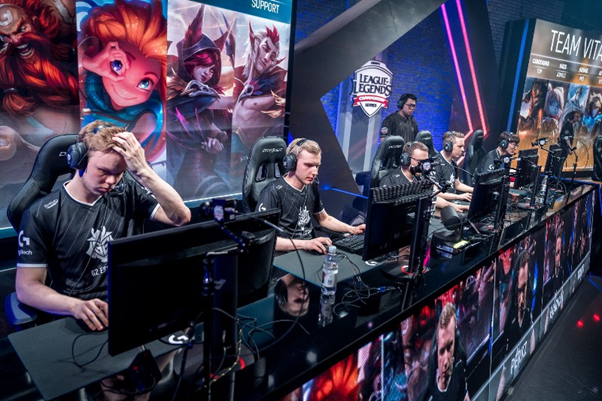The art of esports team management is a multifaceted endeavor that requires a blend of strategic thinking, interpersonal skills, and adaptability.
A skilled manager crafts a team that operates as a well-oiled machine, where each player’s strengths complement the others’.
As the esports industry continues to grow, the role of team managers will remain indispensable, ensuring that talented players reach their full potential and claim victory on the digital battlefield.
The role of an esports team manager is akin to that of a conductor, guiding each player’s unique strengths to create harmonious gameplay.
Strategic Vision and Game Insight
A successful team manager possesses a keen understanding of the game itself, its meta, and evolving strategies. This insight allows them to guide their players’ practice regimens and tailor their approaches to counter opponents’ tactics.
With a strategic vision, managers shape the team’s playstyle, map selections, and champion preferences, keeping a finger on the pulse of the ever-changing esports landscape.
Cultivating Team Chemistry
Team chemistry goes beyond mere camaraderie; it’s about nurturing a deep sense of trust, communication, and shared purpose.
Managers work to foster an environment where players respect and understand each other’s playing styles, personalities, and preferences.
Through team-building exercises, communication workshops, and conflict resolution, managers weave the diverse threads of their players into a cohesive fabric.
Talent Scouting and Player Development
Identifying raw talent is an integral part of team management. Managers scout promising players who possess not only exceptional skills, but also the right attitude and willingness to grow.
Once on the team, managers oversee players’ growth, providing them with resources, coaching, and mentorship to refine their abilities and unlock their potential.
Strategy Development and Analysis
Esports is a game of strategies, and managers play a crucial role in developing, refining, and adapting these strategies. They analyse opponents’ gameplay to identify patterns, strengths, and weaknesses. This information informs their team’s strategies, enabling players to counter opponents effectively while capitalising on their own strengths.
Logistics and Well-Being
Beyond the game, team managers manage logistics, including travel arrangements, tournament registrations, and practice schedules.
They also prioritise player well-being by promoting physical and mental health. Adequate rest, proper nutrition, and stress management are all essential components to ensure peak performance during high-stakes tournaments.
Public Relations and Sponsorship
Team managers serve as the face of their teams, representing them to fans, sponsors, and the media. They play a pivotal role in securing sponsorships, negotiating contracts, and maintaining positive public relations. This involves engaging with fans through social media, organising meet-and-greets, and creating content that showcases the team’s personality and achievements.







